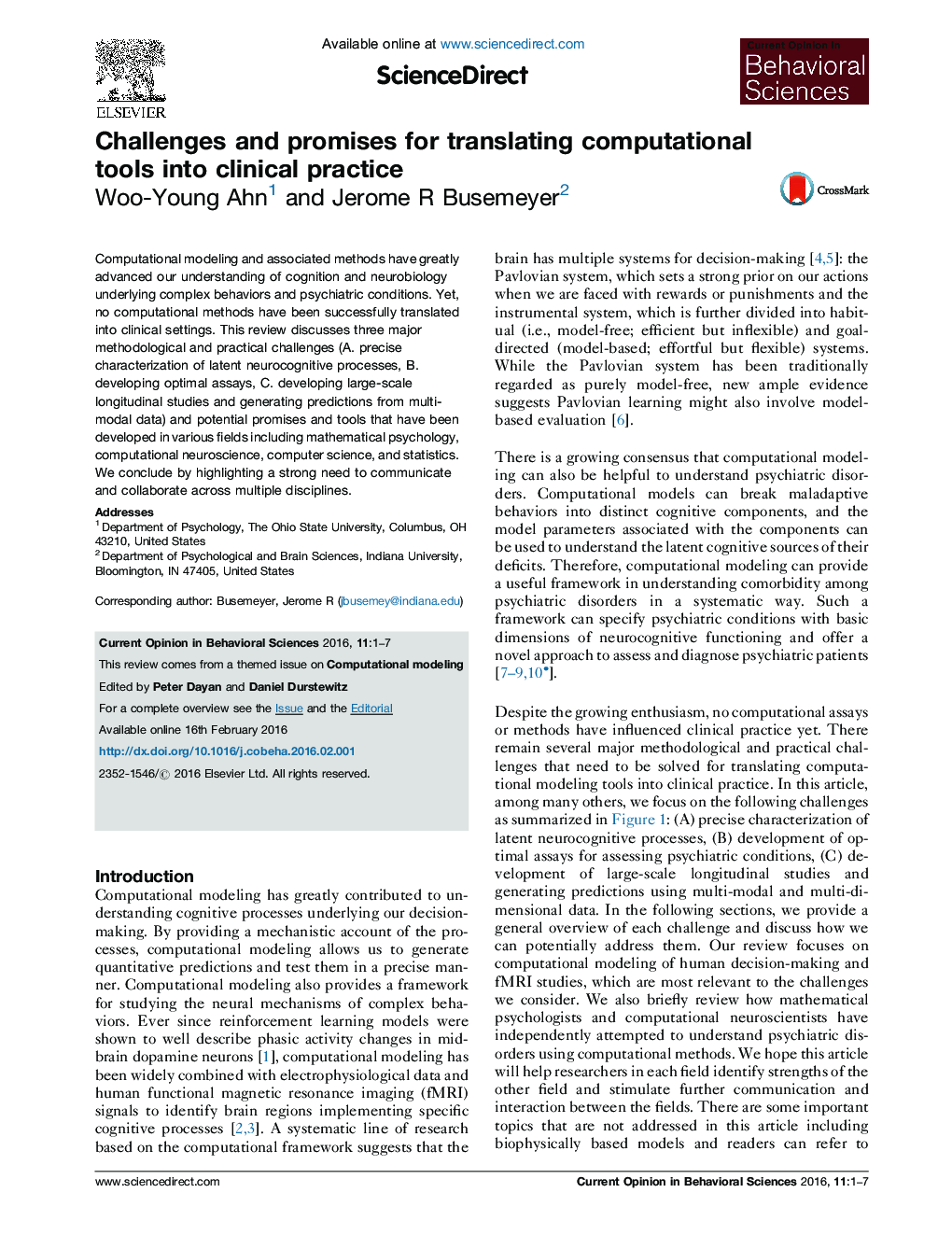| Article ID | Journal | Published Year | Pages | File Type |
|---|---|---|---|---|
| 6260435 | Current Opinion in Behavioral Sciences | 2016 | 7 Pages |
â¢Computational approaches provide novel insights into psychiatric conditions.â¢There exist several challenges for translating the approaches into clinical tools.â¢This review discusses three major methodological and practical challenges.â¢Highlighting a need to communicate and collaborate across multiple disciplines.
Computational modeling and associated methods have greatly advanced our understanding of cognition and neurobiology underlying complex behaviors and psychiatric conditions. Yet, no computational methods have been successfully translated into clinical settings. This review discusses three major methodological and practical challenges (A. precise characterization of latent neurocognitive processes, B. developing optimal assays, C. developing large-scale longitudinal studies and generating predictions from multi-modal data) and potential promises and tools that have been developed in various fields including mathematical psychology, computational neuroscience, computer science, and statistics. We conclude by highlighting a strong need to communicate and collaborate across multiple disciplines.
